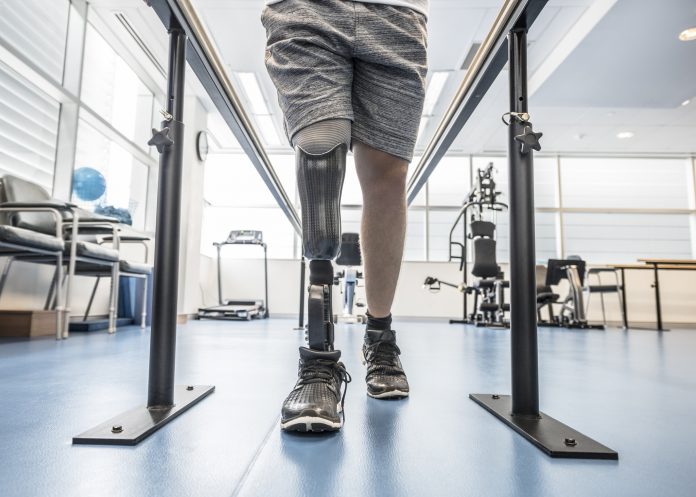Former UK Paralympian John McFall has been hired as the first ever physically disabled astronaut for the European Space Agency (ESA) following a rigorous selection process
John McFall, a former NHS surgeon in Hampshire and a former Paralympian, is the first disabled astronaut in the latest ESA astronaut cohort, having joined last year.
Obtaining a record UK Space Agency investment into ESA, he has begun his studies at the European Astronaut Centre in Germany where he will identify how traditional equipment and facilities for astronaut life could be made more accessible.
His work as the first disabled astronaut working with ESA and NASA will make room for a wider range of people to qualify for human spaceflight.
The impact of being an amputee and wearing a prosthesis in space
As part of the Fly! Feasibility Study, John’s astronaut training will consist of tasks such as sea survival and testing in hyperbaric (low atmospheric pressure) environments and more, to see if being an amputee and/or wearing a prosthesis will have on the requirements for living and working in space.
This research will allow the ESA to test possible solutions to any problems which could occur in space, but also to gather the possibilities of space travel for more disabled astronauts.
John had a motorcycle accident at the age of 19 that resulted in an above-knee amputation. He used sport became important for his rehabilitation. In his early 20s, John gained a Bachelor’s and Master’s degree in Sports and Exercise Science, and taught himself to run again.
He later competed at the highest level in Paralympic sport, winning European, World and Paralympic medals.
“I’m not there as a token or a space tourist”
John McFall told ESPN: “You could probably split the test into three distinct parts. What are the difficulties of being an amputee will cause undertaking some of the training tasks on Earth, whether be basic training or pre-mission or mission-specific tasks.
“The second part: What are the difficulties of putting me in a spacecraft? Depending on what spacecraft or platform I’m launched on, what are the difficulties, if any, that could cause me issues? Does the spacecraft need to be adapted? And then you have the third part in low Earth or beyond.
“I want to be involved, I want to be part of the team and do spacewalks and maintain the equipment outside. I want to do everything that all the other astronauts do and contribute to the team. I’m not there as a token or a space tourist.”

John McFall said: “I’m a naturally curious person and I’m excited about the learning ahead, the science that will come out of it, and the fact that this is the small first step of a much bigger journey.
“While the feasibility study is bespoke to my own disability, this programme delivers a powerful message, which I hope will both broaden people’s appreciation of what people with disabilities can do, as well as inspire people with a range of disabilities about the opportunities available to them.
“My three children are really stoked to be moving to Germany and about the fact that their dad could one day go into space. It’s helping to engage them, especially my two daughters, with STEM learning, which is hugely important to me.”
How much UK funding is being provided to this programme?
The UK government-funded £1.84 billion during the meeting, including £217 million towards the global exploration programme – supporting robotic missions to Mars and contributing to the Artemis Moon programme.
This funding will also go to the Argonaut (European Large Logistics Lander), Gateway space station and commercial lunar communications systems.
Career Astronaut Rosemary Coogan and Meganne Christian were both also selected alongside John McFall for the ESA programme. They were among the first astronauts to be unveiled by ESA since 2009.
“The UK is reaching for the stars in the realm of space innovation”
Science and Technology Secretary, Chloe Smith said: “John was inspirational as a British Paralympian, and I wish him all the success on his journey as he becomes the world’s first Paralympic astronaut – showing there is space for everyone in the industry.
“The UK is reaching for the stars in the realm of space innovation, with three brilliant British candidates handpicked for the Agency’s prestigious astronaut cohort for the first time in over a decade – it is undeniable proof of our stellar global reputation in space leadership.”











